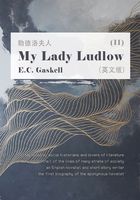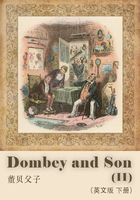Some four hours later Iris lay spread-eagled on a slope of the mountain, high above the valley. Ever since she had left the chill twilight of the gorge, at a shrine which marked a union of paths, she had been climbing steadily upwards, by a steep zigzag track.
After she had emerged from the belt of shadow, the sun had beat fiercely through her, but she did not slacken her pace. The fury of her thoughts drove her on, for she could not dislodge Olga from her mind.
The name was like a burr on her brain. Olga. Olga had eaten her bread, in the form of toast-for the sake of her figure-and had refused her salt, owing to a dietetic fad. This had made trouble in the kitchen. Olga had used her telephone, and misused her car. Olga had borrowed her fur coat, and had lent her a superfluous husband.
At the memory of Olga's Oscar, Iris put on a sprint.
"As if I'd skid for a man who looks like Mickey Mouse," she raged.
She was out of breath when, at last, she threw herself down on the turf and decided to call it a day. The mountain which had challenged her kept withdrawing as she advanced, so she had to give up her intention to reach the top.
As she lay with her eyes almost closed, listening to the ping of the breeze, her serenity returned. A clump of harebells, standing out against the skyline, seemed hardened and magnified to a metallic belfry, while she, herself, was dwarfed and welded into the earth-part of it, like the pebbles and the roots. In imagination she could almost hear the pumping of a giant heart underneath her head.
The moment passed, for she began to think of Olga again. This time, however, she viewed her from a different standpoint, for the altitude had produced the usual illusion of superiority. She reminded herself that the valley was four thousand feet above sea-level, while she had mounted about five thousand feet.
On the basis of this calculation she could afford to be generous, since she was nine thousand feet taller than her former friend-assuming, of course, that Olga was obliging enough as to remain at sea-level.
She decided to wash out the memory as unworthy of further anger.
"But never again," she said. "After this, I'll never help any one again."
Her voice had the passionate fervour of one who dedicates herself to some service. With the virtuous feeling of having profited by a lesson, for which heavy fees had been paid, she smoked a cigarette before the return journey. The air was so clear that mountains she had never seen before quivered out of invisibility and floated in the sky, in mauve transparencies. Far below she could see an arm of the lake-no longer green, but dimmed by distance to a misted blue.
Reluctantly she rose to her feet. It was time to go.
The descent proved not only monotonous, but painful, for the continual backward jolt of her weight threw a strain on unexercised muscles. Her calves began to ache and her toes were stubbed on the stony path.
Growing impatient, she decided to desert the zigzag, in favour of a direct short-cut down the face of the mountain. With the lake as a guide to direction, she hurled herself down the slope.
It was a bold venture, but almost immediately she found that the gradient was too steep. As she was going too quickly to stop, her only course was to drop down to a sitting posture and glissade over the slippery turf-trusting to luck.
From that moment things happened quickly. Her pace increased every second, in spite of her efforts to brake with her feet. Patches of blue and green sped past her, as the valley rushed up to meet her, and smashed into the sky. Bumping over the rough ground, she steered towards a belt of trees at the bottom, in the hope that they might save her from a complete spill.
Unfortunately they proved to be rotten from age, and she crashed through them, to land with a bump in the middle of the stony pass.
Her fall had been partially broken, but she felt very sore and shaken as she scrambled to her feet. In spite of her injuries, she did not forget to give the forced laugh which had been drilled into her, at school, as the accompaniment to any game's casualty.
"Rather amusing," she murmured, picking splinters out of her legs.
But she was pleased to notice the shrine, a few yards farther up the track, for this was a definite tribute to her steering. As she was not far from the hotel, she clattered down the gully, thinking of the comforts which awaited her. A long cold drink, a hot bath, dinner in bed. When she caught sight of a gleam of water, at the bend of the gorge, in her eagerness she broke into a limping run.
She rounded the corner and then stopped, staring before her in utter bewilderment. All the familiar landmarks had disappeared, as though some interfering person had passed an india-rubber over the landscape. There were no little wooden houses, no railway station, no pier, no hotel.
With a pang of dismay she realised that she had steered by a faulty compass. This was not their familiar green lake, in which she and her friends had bathed daily. Instead of being deep and ovoid in shape, it was a winding pale-blue mere, with shallow rushy margins.
In the circumstances, there was but one thing to do-retrace her steps back to the shrine and follow the other gully.
It was definitely amusing and she achieved quite a creditable laugh before she began to plod slowly upwards again.
Her mood was too bleak for her to appreciate the savage grandeur of the scenery. It was a scene of stark desolation, riven by landslips and piled high with shattered rocks. There was no crop of vegetation amid the boulders-no chirp of bird. The only sounds were the rattle of loose stones, dislodged by her feet, and the splash of a shrunken torrent, which foamed over its half-dried course, like a tangled white thread.
Used to perpetual company, Iris began to long for faces and voices. In her loneliness, she was even reduced to the flabbiness of self-pity. She reminded herself that, when she returned to England, she would not go home, like others. She would merely go back.
At present she was living at a hotel, for she had sublet her small luxury flat. Although her mode of living was her own choice, at such a time and such a place she felt that she paid a high price for freedom.
Her mood did not last, for, at the top of the pass, she was faced with a call upon her fortitude. Casting about, to pick up her bearings, she made the discovery that the shrine was different from the original landmark where she had struck the mountain zigzag.
This time she did not laugh, for she felt that humour could be carried too far. Instead she was furious with herself. She believed that she knew these mountains, because, with the others, she had clattered up and down the gorges, like a pack of wild goats.
But she had merely followed-while others led. Among the crowd was the inevitable leader-the youth with the map.
Thrown on her own resources, she had not the least idea of her direction. All she could do was to follow the gorge up to its next ramification and trust to luck.
"If I keep on walking, I must get somewhere," she argued. "Besides, no one can get lost who has a tongue."
She had need of her stoicism, for she had grown desperately weary, in addition to the handicap of a sore heel. When, at last, she reached a branch which gave her a choice of roads, she was too distrustful of her own judgement to experiment. Sitting down on a boulder, she waited on the chance of hailing some passer-by.
It was her zero-hour, when her independence appeared only the faculty to sign cheques drawn on money made by others-and her popularity, but a dividend of the same cheques.
"I've been carried all my life," she thought. "And even if some one comes, I'm the world's worst linguist."
The description flattered her, for she had not the slightest claim to the title of linguist. Her ignorance of foreign languages was the result of being finished at Paris and Dresden. During the time she was at school, she mixed exclusively with other English girls, while the natives who taught her acquired excellent English accents.
This was her rendering of the line in the National Anthem-"Send us victorious."
Patriotism did not help her now, for she felt slightly doubtful when a thick-set swarthy man, wearing leather shorts and dirty coloured braces, swung up the pass.
Among Iris' crowd was a youth who was clever at languages. From his knowledge of common roots, he had managed to use German as a kind of liaison language; but he had to draw on his imagination in order to interpret and be understood.
Iris had a vivid recollection of how the crowd used to hoot with derision at his failures, when she called out to the man in English and asked him to direct her to the village.
He stared at her, shrugged, and shook his head.
Her second attempt-in a louder key-met with no better success. The peasant, who seemed in a hurry, was passing on, when Iris barred his way.
She was acutely aware of her own impotence, as though she were some maimed creature, whose tongue had been torn out. But she had to hold his attention, to compel him to understand. Feeling that she had lapsed from the dignity of a rational being, she was forced to make pantomimic gestures, pointing to the alternative routes in turn, while she kept repeating the name of the village.
"He must get that, unless he's an idiot," she thought.
The man seemed to grasp her drift, for he nodded several times. But, instead of indicating any direction, he broke into an unfamiliar jargon.
As Iris listened to the torrent of guttural sounds, her nerve snapped suddenly. She felt cut off from all human intercourse, as though a boundary-line had been wiped out, and-instead of being in Europe-she were stranded in a corner of Asia.
Without money and without a common language, she could wander indefinitely. At that moment she might be headed away from the village and into the wilds. The gorge had many tributary branches, like the windings of an inland sea.
As she grew afraid, the peasant's face began to waver, like the illusion of some bad dream. She noticed that his skin glistened and that he had a slight goitre; but she was definitely conscious of his steamy goatish smell, for he was sweating from his climb.
"I can't understand you," she cried hysterically. "I can't understand one word. Stop. Oh, stop. You'll drive me mad."
In his turn the man heard only a string of gibberish. He saw a girl, dressed like a man, who was unattractively skinny-according to the local standard of beauty-with cut dirty knees. She was a foreigner, although he did not know her nationality. Further, she was worked up to a pitch of excitement, and was exceptionally stupid.
She did not seem to grasp that she was telling him less than half the name of the village, whereas three different hamlets had the same prefix. He had explained this to her, and asked for the full word.
Iris could not have supplied it even if she had understood the man. The name of the village was such a tongue-twister that she had never tried to disentangle it, but, like the rest, had called it by its first three syllables.
The position was stalemate. With a final grimace and shrug, the peasant went on his way, leaving Iris alone with the mountains.
They overhung her like a concrete threat. She had bought picture-postcards of them and broadcast them with the stereotyped comment-"Marvellous scenery." Once she had even scrawled "This is my room," and marked a peak with a derisive cross.
Now-the mountains were having their revenge. As she cowered under the projecting cliffs, she felt they had but to shake those towering brows, to crush her to powder beneath an avalanche of boulders. They dwarfed her to insignificance. They blotted out her individuality. They extinguished her spirit.
The spell was broken by the sound of English voices. Round the bend of the pass came the honeymoon couple, from the hotel.
This pair of lovers was respected even by the crowd, for the completeness of their reserve and the splendour of their appearance. The man was tall, handsome, and of commanding carriage. His voice was authoritative, and he held his head at an angle which suggested excessive pride. Waiters scampered at his nod, and the innkeeper-probably on the strength of his private sitting-room-called him "Milord."
His wife was almost as tall, with a perfect figure and a flawless face. She wore beautiful clothes which were entirely unsuitable for the wilds; but it was obvious that she dressed thus as a matter of course, and to please only her husband.
They set their own standard and appeared unconscious of the other visitors, who accepted them as belonging to a higher social sphere. It was suspected that the name "Todhunter," under which they had registered, was a fiction to preserve their anonymity.
They passed Iris almost without notice. The man raised his hat vaguely, but his glance held no recognition. His wife never removed her violet eyes from the stony track, for her heels were perilously high.
She was speaking in a low voice, which was vehement in spite of its muffled tone.
"No darling. Not another day. Not even for you. We've stayed too-"
Iris lost the rest of the sentence. She prepared to follow them at a discreet distance, for she had become acutely aware of her own wrecked appearance.
The arrival of the honeymoon pair had restored her sense of values. Their presence was proof that the hotel was not far away, for they never walked any distance. At the knowledge, the mountains shrank back to camera-subjects, while she was reconstructed, from a lost entity, to a London girl who was critical about the cut of her shorts.
Very soon she recognised the original shrine, whence she had deserted the pass. Limping painfully down the track, presently she caught the gleam of the darkening lake and the lights of the hotel, shining through the green gloom.
She began to think again of a hot bath and dinner as she remembered that she was both tired and hungry.
But although apparently only the physical traces of her adventure remained, actually, her sense of security had been assailed-as if the experience were a threat from the future, to reveal the horror of helplessness, far away from all that was familiar.















